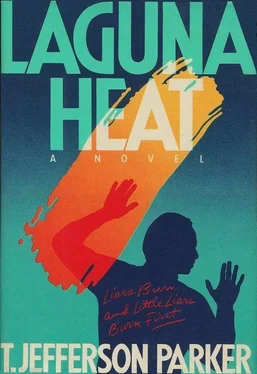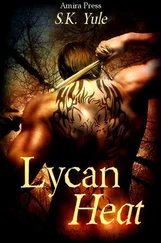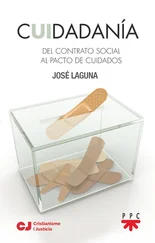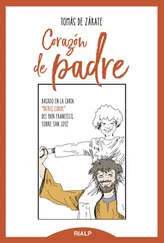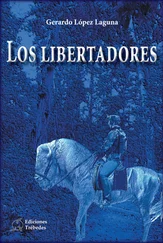“Don’t try to do too much. You can get too close to things sometimes.”
“I’ve spent most of my life trying to stay far away.”
Shephard pondered her words. What a strange, fine thing it was, to be called on the telephone. He wondered what to say, and had just settled on sleep well tonight, Jane, when she put the phone back in its cradle.
He had almost passed the darkened booth in Kano’s when a cigarette lighter clicked and a long orange flame coaxed the face of Dorothy Edmond from the shadows. Shephard sat down and found himself surrounded by the smell of smoke and lilac perfume. Her face was made up cadaverously. The deep lines that had shown up so clearly in the sunlight were now buried in powder; the red-rimmed gray eyes were framed in a glittery makeup that caught the light of the table candle; her full lips had been painted an unnatural violet. And the gray-black hair that had dangled nearly to her shoulders on the Surfside dock was now hidden beneath a lavender scarf that was pinned on one side by a diamond cluster. Shephard settled into the overly luxuriant booth. The restaurant seemed barely living: a man in a dark suit hunched over a drink at the bar, while near the window a young couple sat with their backs to the lounge, silently watching the ships bobbing in the harbor.
A waitress appeared. Dorothy Edmond tapped her empty glass with a pale, jewel-heavy hand, and Shephard ordered a beer. As she turned to watch the waitress leave, Shephard noted the handsome profile of her lined face. Beautiful, he thought, and corrupted. Like obscenities in Spanish. Her black dress was cut low enough to reveal a withering, sundried cleavage. She brought her hand to her mouth and quelled a rattling, phlegmy cough.
“That cough is my best friend, detective. We go everywhere together.” As she studied him, Shephard felt like a slave being inspected by a prospective buyer.
“Joe wasn’t too happy to see us talking,” he said finally.
“Joe isn’t happy about anything he can’t control,” she answered, as if it were an aside to be dispensed with quickly. “You probably noticed that he plays tennis without a partner. Fewer surprises, and only one winner.”
The drinks arrived and Shephard reached for his pocket, but Dorothy cut him off. “We’re on a tab,” she said. “I’d wear a hole in that pretty young hand of yours if we weren’t.” The waitress laughed with the forced enthusiasm reserved for good tippers. When she had gone again, Dorothy sipped her drink — Shephard noted that it was straight gin — then coughed into her hand. “Are you happy?” Her voice was raw and low and she asked the question as if everything that would follow depended on his answer.
“Reasonably. I got divorced last summer and pistol-whipped last Monday, but I’m a strong finisher.”
“Trifles,” she decided after a long pause. “It doesn’t really matter because you’ll be less happy when you leave here, and less happy than that later. Welcome to the club.”
“Are my dues current?”
Dorothy Edmond set down her glass and shot him an inhospitable glance. “Don’t be glib, young man. And understand two things before we go any farther. One is that I’ll tell you nothing that isn’t true. The other is I’ll tell you nothing I don’t want to. We can get along as two people helping each other, or you can heave your bureaucracy at me. But it won’t work. I don’t mind hell, I’ve been there.”
Before Shephard could form a reply, the woman’s face contorted and her hand shot up with a handkerchief in it. The cough exploded as she turned her head away.
“Bless you,” he said.
“Yes, God bless Dorothy.” She pulled a long cigarette from a silver box on the table and Shephard lit it. “I’m going to tell you a little story, detective. When it’s over, I might entertain a question or two like you did on TV last night. Until then, you just listen.
“It begins with a young man named Joe, who was one handsome devil and a good tennis player. He served his country in the war, then settled on the coast along with a million hopefuls like him. His family was in Georgia, living on a rather large estate that wasn’t theirs. His father was the groundskeeper, his mother a maid. Young Joe picked up his tennis on the estate courts, made love and proposed marriage to a bitterly ugly daughter, and was ejected from the scene with dispatch. Poor man, it must have been like sitting in a restaurant where you can’t afford anything on the menu.” She drew heavily on the gin.
“And young Joe was a dreamer. He dreamed of his own estate; of registering the name Datilla on the society pages; of money, class, power. A common enough dream. But Joe knew that to dream is to sleep, and he was no sleeper. He fell in with some rich friends in Newport Beach — Pasadena wealth summering in Orange County. Mostly the women. In Newport Beach you are society if you look society and act it. Joe did, and some friends pulled strings for a nice loan to start a club. A tennis club, ritzy and exclusive. His meager capital required a partner. Call him Burt. And together they bought a hunk of the California coast so cheap you’d laugh if I told you how much. The first courts went up a few months later, with a small clubhouse and a lounge.
“Everything worked. Burton was an accountant by training, and he knew how to maximize the money. Joe was a hustler and knew how to make rich people feel rich. His years as a servant’s son paid off regally. After the war there was a hell of a rush into Orange County, and they’d bought in just before it started. A rush and a baby-boom, detective, which deposited on our shores a million happy infants like yourself. And for every new member who joined and paid the handsome dues, Joe and Burt took a little money aside and put it back into the Surfside Club. It grew like those babies did. It was strong, healthy, and happy. They incorporated and took thirty percent each for controlling interest.”
Dorothy took a long drink from her gin and lit another cigarette. Shephard’s beer had scarcely dwindled.
“But it didn’t take a snake to point out the apple,” she continued. “By 1950, the land value had gone up by half. Members and money seemed to fall from the clouds. Apartments, suites, two restaurants, a dock modestly named A Dock by pedestrian Burton. The sailing contingent was something they hadn’t catered to or banked on, but Joe saw they were naturals for his Surfside. So Joe and Burt began to disagree. They were faced with a fortune that neither one even imagined when they started. Why two people can weather the hard times together and then fight when the sun shines is a question that I’ve never been able to answer. But, hell, it happens to marriages all the time.
“Joe saw the club as a big but exclusive plantation, like the one he grew up on. A money-maker plain and simple. But Burt began talking about incorporating as a municipality. He was talking about a sprawling little city on the coast, where people might buy in at a reasonable rate. He saw a planned community, with its own shopping centers, private beaches, a progressive school system. He was thinking democratic. He was talking to the papers and getting a bit of the spotlight that had always been Joe’s. All Joe could do was smile and play along. Like any good businessman, he knew the value of sterling public relations.
“Not falling asleep, are you, detective? The story is just starting to get good.” She drank again from the gin, and though she was nearly finished with her second double, Shephard saw no change in her pale gray eyes.
“Burt was a married man, but he was in love, too, and it wasn’t with his wife. You might call the other woman Helene. They were not altogether discreet, Burton and his mistress. His wife, Hope, remained in a state of disrespectful shock and made no waves. Helene was a wonderful mistress, I suppose, and a clever woman. I might try to explain to you how she got Burt to will his thirty percent of stock to her, but I never really understood it myself. She was a detestable woman in my view, but she got what she wanted, almost all the time.”
Читать дальше
